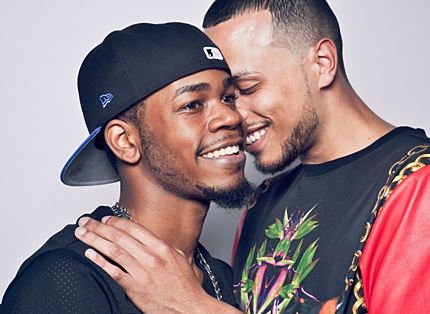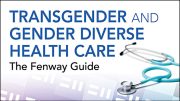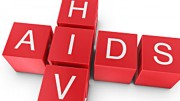By: Amir Dixon/Special to TRT—
When I moved to Boston from South Florida for school almost five years ago, I was adamant that I wanted a doctor in Dorchester, which is where I lived. I assumed a Black physician would better serve me, since we would share the experience of being a person of color. When I met with my doctor, an African-American heterosexual man, I came out to him and told him I preferred to have sex with men. He looked at me strangely, with no response. I left his practice and found another clinician, who was white but known to be more “gay friendly.” At one point in my first visit, he referred to people of African descent as “you people.” In theory, both of these doctors were supposed to be “culturally competent” for patients like me. I learned that was not the case. For too many black and brown men who are gay, bisexual, or and queer, seeking health care services includes facing overt and covert racism and homophobia. Finding holistic care that treats us as whole people, taking into account our physical, mental, social, and sexual well-being is rare.
From conversations with other folks with whom I share an identity as a racial or sexual minority, it is apparent that my experience is not unique. People are often at a loss as to where to go for needed services, and are afraid to ask friends. Consequently, many of us try to navigate the world in silence, isolation, loneliness and invisibility. For many of us, this silence leads to depression, substance abuse and behaviors that put us at risk for HIV and other sexually transmitted diseases. Research has shown how experiences of racism, homophobia, and stigma related to poverty can deter Black and brown gay, bisexual and queer men from seeking health care, or adhering to advice from providers. [pullquote]When I met with my doctor, an African-American heterosexual man, I came out to him and told him I preferred to have sex with men. He looked at me strangely, with no response. I left his practice and found another clinician, who was white but known to be more “gay friendly.” At one point in my first visit, he referred to people of African descent as “you people.” [/pullquote]
For community organizations seeking to serve men from my community, there is often a feeling that clients are dealing with multiple, overwhelming issues—more than they can address with limited, narrowly defined funding. At the same time, it seems that competition for these resources creates a barrier to organizations working together to ensure that a range of services are made available to people across agencies.
These are formidable challenges, but they must be overcome. One way to begin is to develop social media campaigns that reach Black and brown men, particularly young men, wherever they are, and give them easy access to resources through links on smartphones, tablets and other devices. Once they are in the door, we need to make sure that services are provided to the whole person, whatever his needs may be. No one agency or provider can do this. We have to make sure that health care service providers are competent, sensitive, and connected to each other. [pullquote]This month, the Multicultural AIDS Coalition is launching a new campaign aimed to make these connections. In collaboration with Fenway Health and AIDS Action Committee, we will launch #CONNECTEDBoston! … The campaign aims to use new media as well as traditional media to reach black and brown gay, bisexual and queer men in Greater Boston, and offer centralized access to many of our city’s health resources.[/pullquote]
This month, the Multicultural AIDS Coalition is launching a new campaign aimed to make these connections. In collaboration with Fenway Health and AIDS Action Committee, we will launch #CONNECTEDBoston! The campaign aims to use new media as well as traditional media to reach black and brown gay, bisexual and queer men in Greater Boston, and offer centralized access to many of our city’s health resources. Whether it is access HIV counseling and testing, help finding and making an appointment for a new doctor, options for support groups, information about new HIV prevention tools such as Pre-exposure prophylaxis (PrEP), help in adhering to medical treatment, or finding a space where you can talk to peers about being a gay, bisexual or queer man – #CONNECTEDBoston will be a valuable resource.
The #CONNECTEDBoston Campaign Launch will happen on Friday, June 20th, from 6-8 p.m. at The Harriet Tubman House, located at 566 Columbus Avenue in the South End.
We will share the campaign photos as well as launch the website where people will be able to access and connect to resources.
RSVP at connectedboston.eventbrite.com. Visit Mac-Boston.org for more information.
This is more than an initiative, more than a campaign. This is a movement and we need your support. We need to hear your voices. Through this campaign our experiences will be honored through a model of collective community sharing.
Let’s be visible. Radically.
*Amir Dixon is an award winning film maker, writer and activist. He is a son, brother and warrior. He is the founder of Nu Nation Now Productions and is a board of the Hispanic Black Gay Coalition Follow him at @AmirNow








